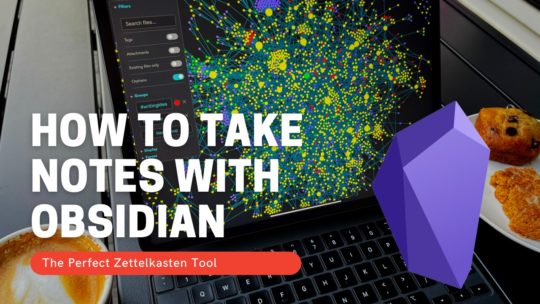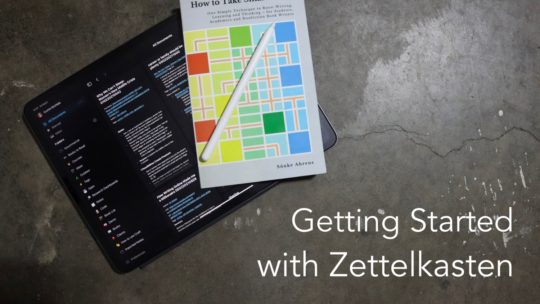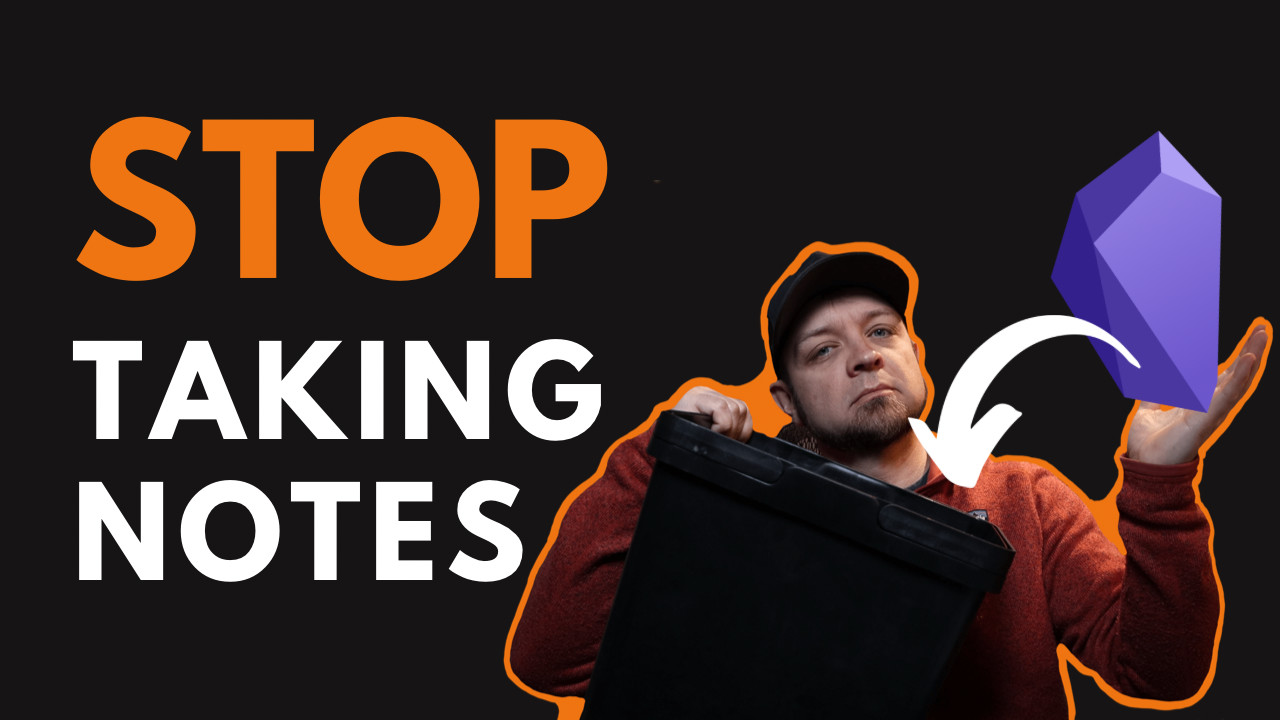The cult of note-taking is failing most of us. It’s convinced us that we need to take lots of notes on far too many things that come across our desks or screens when the truth is 95% of it is all that’s worth reading and maybe 5% of that stuff that’s worth reading is worth taking notes on.
I’ve fallen into this trap with books and articles and…so many things I now regret spending my time on.
How Many Do You Ever Go Back To?
The truth is that most of the notes we take are useless and will remain useless. We take them because it makes the knowledge graph look sexier, not because they have any utility to us. We take them because we’re new to note-taking, or have a newfound drive to take notes. It’s easy to fall into the trap that more notes are note-taking done right.
Most of the notes taken about books and other writing are on sources that don’t deserve a single word written about them. They’re low quality and shouldn’t have been given more than a skim on their way to their proper place deep in the recesses of our past never to be thought of again.
Even entirely ignoring clickbait headlines, most of the decent writing in the world isn’t going to contribute in a meaningful way to the things that interest you.
The Reading Pyramid
Just like most notes we take are a waste of time, most of the reading we can do in a lifetime is a waste of our time. Most videos we could consume are of little value. These low-value resources should be given little attention as they pass by us. Unfortunately, the cult of note-taking has far too many people writing notes on things that are trivial.
A few things that we find are worth reading but that’s it. They’re not worth taking notes on because they don’t expand any of the thinking we already have. Many of the things I link to in PKM Weekly fall into this category for me. They’re worthwhile for the newsletter but I take no personal notes on them because they don’t greatly change my thoughts on my own notes.
Maybe once every two weeks one of these articles on note-taking is worth summarizing because it does make me rethink how I’m doing things. But they’re not worth second or third looks. Their entire utility can be found in the few sentences I used to summarize them for the newsletter. I keep no other record of these sources passing by.
Finally, in your life, you will only encounter a very few things that are worth reading a few times and taking extensive notes on. One good example of this is How to Read a Book, which is where I first got the idea of a content quality pyramid from. I’ve read it at least twice and plan on reading it a third time in preparation for future projects.
Open Old Notes Instead
Once you’ve vetted content properly the best place to start when you want to take a note is to use the open command in your note system. In Obsidian I remapped the default keyboard command for creating a new note so that it opens a note instead. In this simple action, I find old notes that can use a slight tweak or enhancement far more often than I’m creating new notes now.
Even if you’re on day one of using a note-taking system like Obsidian, remap the new note command to open existing notes. Get in the habit of seeing what already connects and exists in your system before you blindly add to your system.
By doing this you’ll produce fewer notes, but more of them will be higher quality notes with good thoughts and references to back them up. They’ll be rewritten based on a number of sources and contain better thinking.

Getting Started with Obsidian
If you want to learn your way around Obsidian so that you can build a great note system then this course is for you. I’ll cover basic folder structure when to use tags or links, and the plugins I think everyone needs to make their Obsidian experience excellent. Plus much more. If you want all my courses, become a member.
$99 USD (30-day guarantee)

Getting Started with Zettelkasten
If you’ve been wondering about what Zettelkasten is and how to start organizing your notes with this excellent system then this course is for you. I’ll cover the basics of choosing which tool to use, how to take notes, how to deal with linking your notes, and much more. You can also become a member to get all my courses.
$99 USD (30-day guarantee)

3 responses to “STOP Taking Notes, it’s a waste of time”
Hmm – digital notes only? Nah… I’ll keep taking notes. I think the process of actually taking the note, and for me – by hand – written with a pencil/pen. These help the learning and retention process. I don’t have any data on this, but I’ll bet it’s there since lot’s of people use the same process. Like the vid though 🙂
There is a bunch of research on the efficacy of handwriting notes. You do a better job summarizing instead of copying verbatim. So you do a better job taking notes in your own words.
Finding notes is much easier in a digital system though.
[…] I published a video on why you should stop taking notes. […]